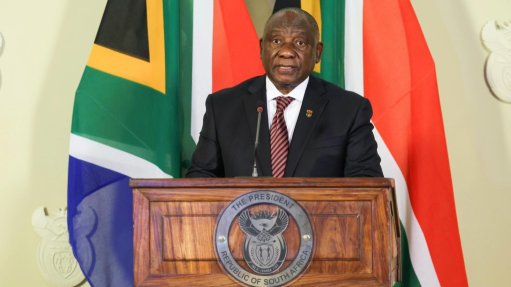Elites escape healthcare crisis
I’m part of a WhatsApp group for journalists from across Central, East and Southern Africa, where we share serious news and insider titbits and occasionally dive into debates ranging from insightful to entertaining. One of our recent ‘breaking news’ post was the reported death of Cameroonian President Paul Biya while receiving medical treatment in Switzerland. But in true twenty-first-century fashion, the rumours were soon debunked when the 91-year-old – who hadn’t been seen in public for six weeks – made a dramatic return home, with television cameras tracking his every step as he strolled out of the airport in Yaoundé.
Had the rumours been true, Biya would have joined an exclusive club of African leaders who have met their end while receiving medical care overseas. Zimbabwe’s Robert Mugabe, for example, made his exit at a hospital in Singapore in September 2018. Ditto Zambia’s Levy Mwanawasa and Michael Sata, who died in France and the UK respectively. Then there is Ethiopia’s Meles Zenawi, who passed away in Belgium, and Gabon’s Omar Bongo, who died in Spain. Even Guinea Bissau’s Malam Bacai Sanhá could not resist the European healthcare experience, passing away in France.
One thing these leaders had in common was a preference for foreign hospitals over local ones. That’s because the facilities in their own countries – especially State-run ones – are desperately underfunded. This is not a new revelation; it’s something that has been known for decades. In fact, at a meeting in Abuja, Nigeria, in April 2001, African governments committed to allocating 15% of their budgets to healthcare.
Recent analysis of two decades of data shows that only two of the African Union’s (AU’s) 55 member States, Carbo Verde and South Africa, met this target in 2021, with average healthcare expenditure accounting for only 7.4% of national budgets. This compares with a global average of 11%, 14% in Europe and just under 15% in the Americas.
South Africa is also the only country on the continent with more than the global average of 2.7 hospital beds per 1 000 people, while the ratio for Nigeria, Africa’s most populous nation, is 1.1.
According to analysis by rights watchdog Human Rights Watch, seven AU members States spend less per person on healthcare through public means than they did in 2000, the year before the 2001 pledge, officially known as the Abuja Declaration. Madagascar and Benin both effectively reduced their per capita spending by 62% over this period. Other poor performers include Eritrea, which has seen per capita expenditure decrease by 55%, followed by the Central African Republic (44%), Chad (37%), Sudan (36%) and Cameroon (8%).
In Nigeria, the underfunding has left hospitals so dilapidated that about 5 000 citizens leave the country monthly to seek various forms of treatment overseas, according to one study. As a result, $1.2-billion is lost to the Nigerian economy every year. But 5 000 is a drop in the ocean, considering Nigeria’s huge population of about 220- million. The vast majority of citizens, lacking the means, simply have to make do with the shoddy services available.
Underfunding has also created the paradoxical situation whereby African countries have hordes of unemployed healthcare workers who cannot be hired by severely understaffed public-sector facilities. According to the World Health Organisation, the shortage across the region is poised to increase to a staggering 6.1-million by 2030, based on population needs and disease prevalence.
The situation is compounded by a brain drain, with one out of every ten African doctors and nurses already working abroad – mostly in Australia, Canada, the UK and the US – while 42% intend to leave in the future.
It is the poor who suffer the brunt of this state of affairs, as the elites have the wherewithal to seek care in their countries’ private sector, where cost is a barrier only they can surmount, or follow the example of African Presidents who make a beeline for Europe, mostly, when they are unwell.
I am convinced that, if our leaders had the will, they could divert money from other purposes towards healthcare.
Article Enquiry
Email Article
Save Article
Feedback
To advertise email advertising@creamermedia.co.za or click here
Announcements
What's On
Subscribe to improve your user experience...
Option 1 (equivalent of R125 a month):
Receive a weekly copy of Creamer Media's Engineering News & Mining Weekly magazine
(print copy for those in South Africa and e-magazine for those outside of South Africa)
Receive daily email newsletters
Access to full search results
Access archive of magazine back copies
Access to Projects in Progress
Access to ONE Research Report of your choice in PDF format
Option 2 (equivalent of R375 a month):
All benefits from Option 1
PLUS
Access to Creamer Media's Research Channel Africa for ALL Research Reports, in PDF format, on various industrial and mining sectors
including Electricity; Water; Energy Transition; Hydrogen; Roads, Rail and Ports; Coal; Gold; Platinum; Battery Metals; etc.
Already a subscriber?
Forgotten your password?
Receive weekly copy of Creamer Media's Engineering News & Mining Weekly magazine (print copy for those in South Africa and e-magazine for those outside of South Africa)
➕
Recieve daily email newsletters
➕
Access to full search results
➕
Access archive of magazine back copies
➕
Access to Projects in Progress
➕
Access to ONE Research Report of your choice in PDF format
RESEARCH CHANNEL AFRICA
R4500 (equivalent of R375 a month)
SUBSCRIBEAll benefits from Option 1
➕
Access to Creamer Media's Research Channel Africa for ALL Research Reports on various industrial and mining sectors, in PDF format, including on:
Electricity
➕
Water
➕
Energy Transition
➕
Hydrogen
➕
Roads, Rail and Ports
➕
Coal
➕
Gold
➕
Platinum
➕
Battery Metals
➕
etc.
Receive all benefits from Option 1 or Option 2 delivered to numerous people at your company
➕
Multiple User names and Passwords for simultaneous log-ins
➕
Intranet integration access to all in your organisation

















